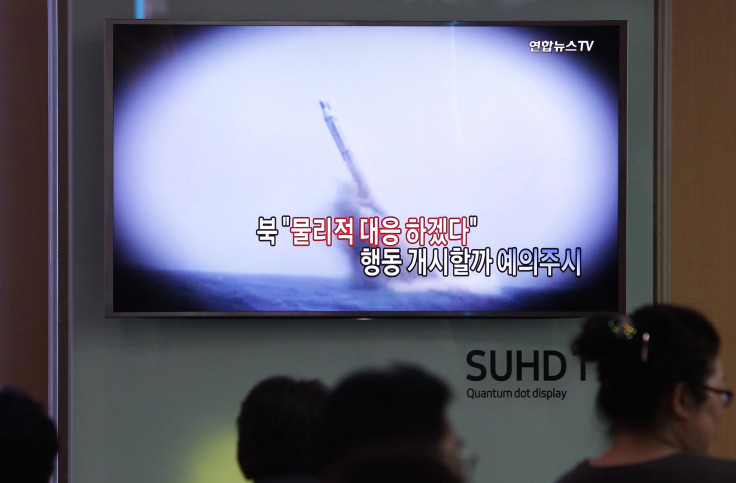South Korea Refuses Talks With China Over THAAD Missiles Deployment

South Korea’s defense ministry said Friday that it did not intend on holding talks with China over the U.S.’ Terminal High Altitude Area Defense (THAAD) missile defense system deployed in South Korea.
The rejection came after Beijing urged Seoul to ensure that a U.S. anti-missile system installed in southern South Korea not infringe on China’s security interests and to open talks early to facilitate discussion.
According to South Korea’s Yonhap News, a spokesman at the Ministry of National Defense in North Korea, Moon Sang-gyun, said: "There is no plan for such talks."
Earlier this week, Chinese Foreign Minister Wang Yi during talks with his South Korean counterpart Kang Kyung-wha in Beijing said Seoul should be committed to its earlier statement of not joining the U.S.’ missile defense system.
The South China Morning Post quoted Wang saying: "There is a saying in China that promises must be kept and action must be resolute. We hope that South Korea will continue to properly handle this problem."
Towards the end of October, both countries’ foreign ministries in coordinated statements said they would improve relations between the two countries after they soured when the U.S. decided that U.S. Forces Korea would deploy the THAAD defense system in South Korea in 2016.
Beijing argued that THAAD could seriously undermine its security by penetrating into China even though Seoul and Washington categorically stated the sophisticated radar and interceptor missile system was to keep away North Korea’s nuclear and missile threats. China expressed concerns that the radar of the battery could be used to spy on China's military activities and capabilities.
China at the time had even issued unofficial sanctions against South Korean firms, including Lotte, the firm which later ceded land to the South Korean to allow for a deployment of the missile system, the Diplomat reported.
The South China Morning Post said the two countries reached "initial consensus" which included South Korea agreeing to not deploy more THAAD batteries, to not consider joining a U.S.-led missile defense system, and to not engage in trilateral military cooperation with the United States and Japan.
However, spokesman Sang-gyun’s comments on Friday seemed to indicate that South Korea was not really intent on taking forwards talks with China regarding the missile deployment. Sang-gyun stated that a local report that had said China had requested Seoul set up a shield against the radar that comes with the THAAD was false. This was the same radar that China claimed could spy on its military facilities and harms its security interests.
The move by South Korea comes amid both countries laying the ground for a visit by South Korean President Moon Jae-in to Beijing next month.
South Korean publication, Korea Times reported that Chinese Prime Minister Li Keqiang and South Korean President Moon Jae-in met on the sidelines of the Association of the Southeast Asian Nations (ASEAN) forum in Manila earlier this month and agreed to ramp up efforts to resolve North Korea’s nuclear and missile threats peacefully.
"The two sides agreed to make efforts to come up with creative solutions to manage the situations stably and create conditions to resume dialogue with North Korea," said Moon's chief press secretary Yoon Young-chan.
© Copyright IBTimes 2024. All rights reserved.











